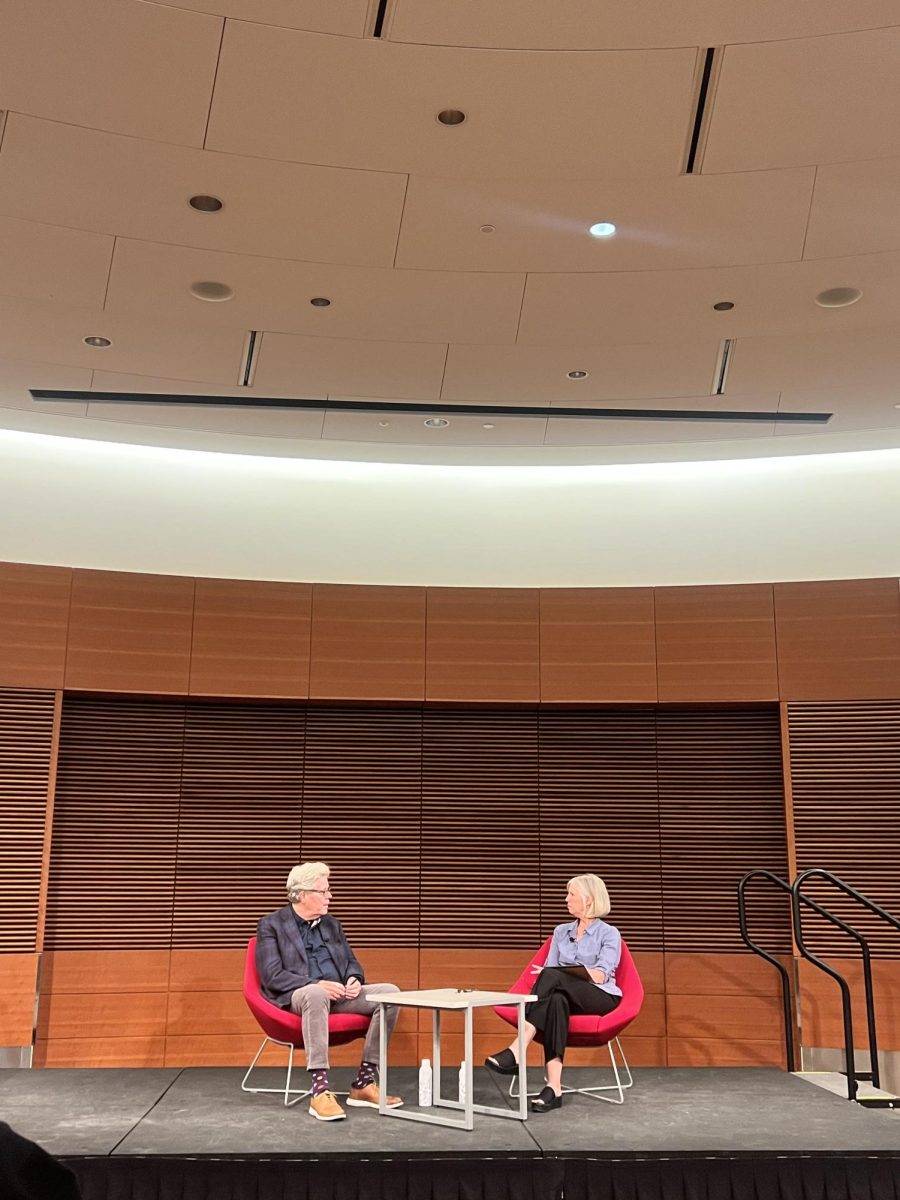Madison native David Maraniss returned to UW Thursday as part of the Sharon Dunwoody Journalist in Residence program to share his experiences in his journey as a writer, journalist and reporter.
Maraniss is also a part of the Washington Post team that won a 2008 Pulitzer for the coverage of the Virginia Tech shooting. He is currently an associate editor for the Washington Post and has been affiliated with the Post for more than 40 years.
Maraniss is a New York Times best-selling author, fellow of the Society of American Historians and a visiting distinguished professor at Vanderbilt University.
Maraniss shared his devotion to writing his books on influential political figures like Barack Obama and Bill Clinton and illuminating sports history subjects like Jim Thorpe, Roberto Clemente and Vince Lombardi.
Maraniss said the key to his craft is a personal obsession with every subject.
“Every book has a different kind of obsession,” Maraniss said. “In every case, there’s something there that draws me in.”
Devoting all his time for years to gather enough research, conduct interviews and tell the story he envisions, Maraniss stated a strategy he uses consistently. He calls it the“4 legs of the table.”
The first leg of the table is to go “there,” wherever “there” is. Second, gather documents. The third leg of the table is to interview as many people as possible, and the final leg is to look beyond the facts of the story to try and find out what’s really there.
“It’s one thing to read about it, and another thing to see it,” Maraniss said.
He told a story about his time living in a Motel Six in Hope, Arkansas, when researching his book on Bill Clinton.
He befriended the motel clerk, who revealed that she had letters written by Clinton himself to his grandmother when Clinton was attending law school at Georgetown.
He was able to use these letters and interviewed over 300 people for his book “First in His Class,” Maraniss said.
A question arose on how journalism as a whole and the hub of information has changed enormously. Maraniss shared how meeting with UW journalism classes has supported his opinions on the adapting forms of information and storytelling. The formats of journalism will inevitably change as they always do, and such evolution is normal, Maraniss said.
“Whether it’s a book, documentary or a Tiktok, it doesn’t matter as long as it’s telling a story,” Maraniss said.
Maraniss has been at the center of the field for 45 years, watching journalism adapt and reform amidst all of the change.
“The formats will keep changing , but if you go out and try to find the truth and tell the story it’s always there for you,” Maraniss said.


